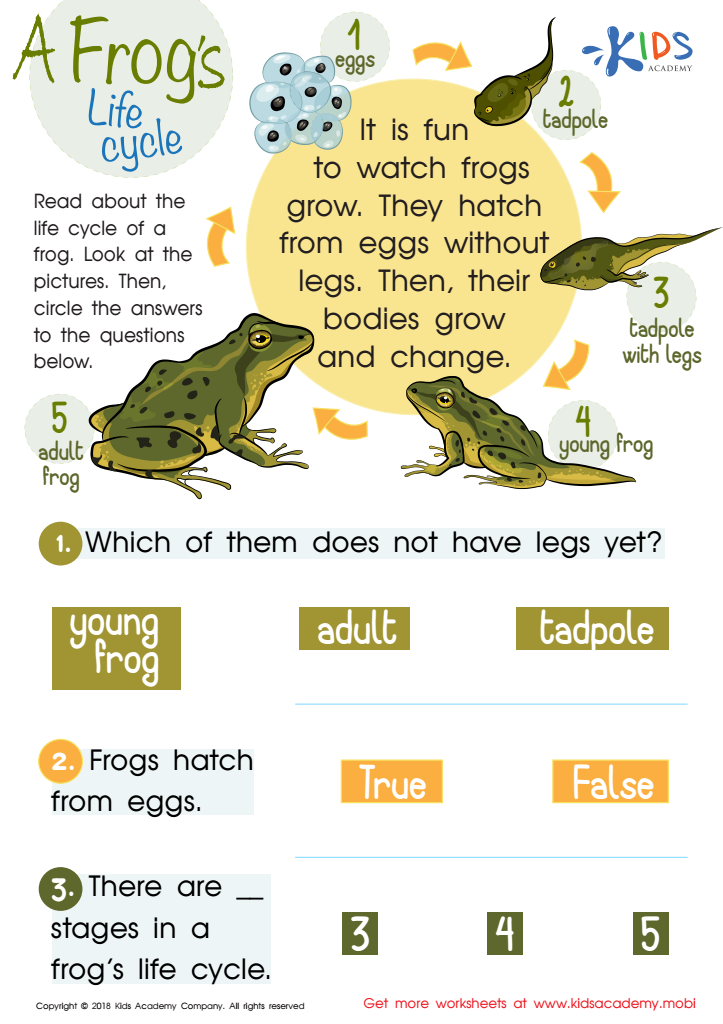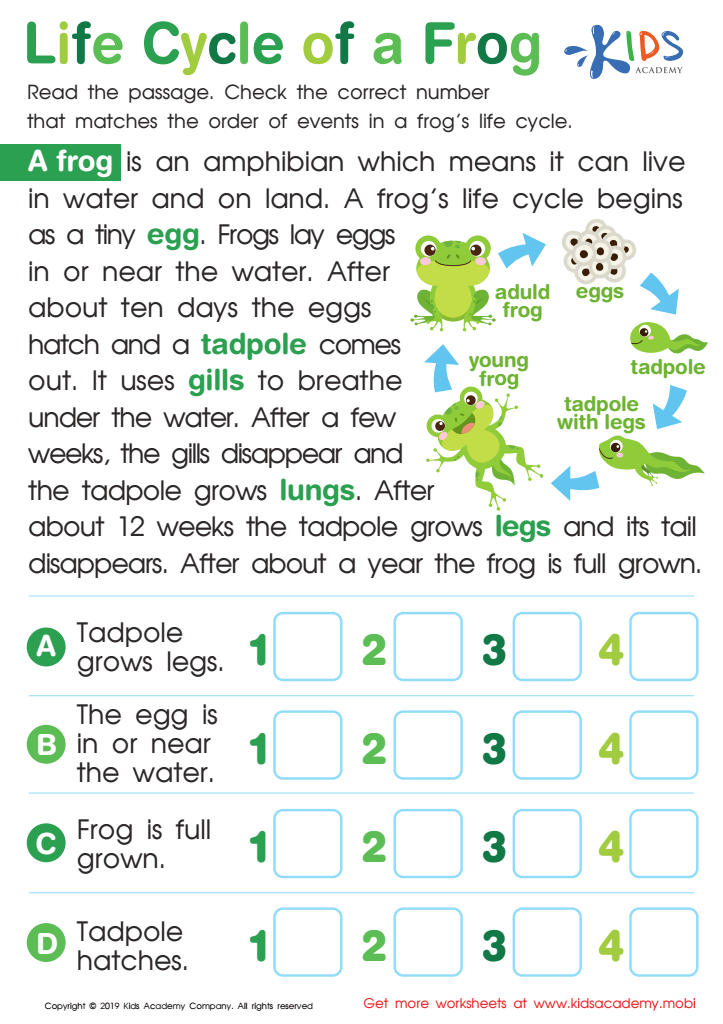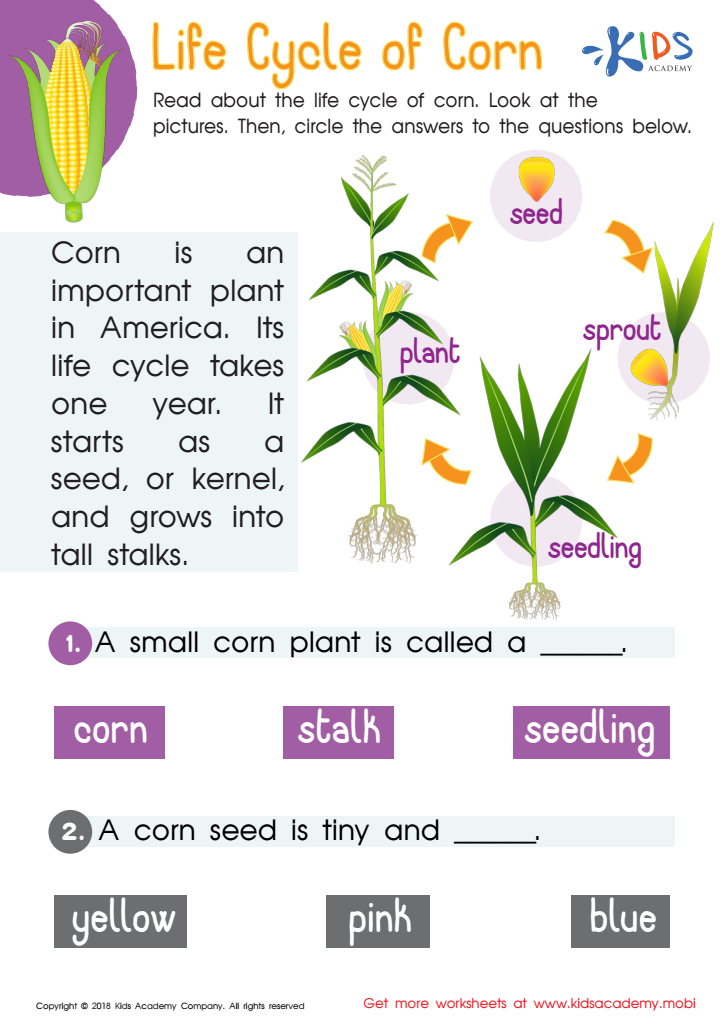Understanding life cycles Easy Reading Non-Fiction Worksheets for Ages 7-9
3 filtered results
-
From - To
Discover the fascinating world of life cycles with our "Understanding Life Cycles" Easy Reading Non-Fiction Worksheets for ages 7-9. These engaging worksheets are designed to simplify complex biological processes, making them accessible and enjoyable for young learners. Students will explore various life cycles, from butterflies to frogs, through fun facts and captivating illustrations. Each worksheet aims to enhance reading comprehension and critical thinking skills, fostering a deeper understanding of nature's wonders. Ideal for classroom use or at-home learning, these resources will spark curiosity and inspire children to appreciate the incredible diversity of life on Earth. Join us on this exciting educational journey!


A Frog’s Life Cycle Worksheet


Life Cycle of a Frog Worksheet


Life Cycle of Corn Worksheet
Parents and teachers should prioritize introducing children to "Understanding Life Cycles" Easy Reading Non-Fiction because it fosters critical cognitive and emotional skills at a crucial developmental stage. First, this topic enhances children's scientific literacy, encouraging them to explore concepts of growth and change in living organisms, from plants to animals. By grasping how life cycles operate, children not only learn about nature but also develop inquiry skills that empower them to ask questions and seek answers.
Moreover, understanding life cycles promotes empathy and awareness of the interconnectedness of life. Children learn to respect nature and understand their role within it, fostering a sense of stewardship for the environment. This knowledge can lead to responsible behaviors as they grow, such as caring for living things and understanding biodiversity.
Additionally, the engaging format of Easy Reading Non-Fiction makes the learning accessible and enjoyable, helping to sustain children's interest in reading and learning. When students comprehend complex ideas in a simplified format, they gain confidence in their abilities and develop a lifelong love for reading. Overall, by investing in resources that teach life cycles, parents and teachers help nurture informed, compassionate, and curious individuals who appreciate the world around them.
 Assign to My Students
Assign to My Students














